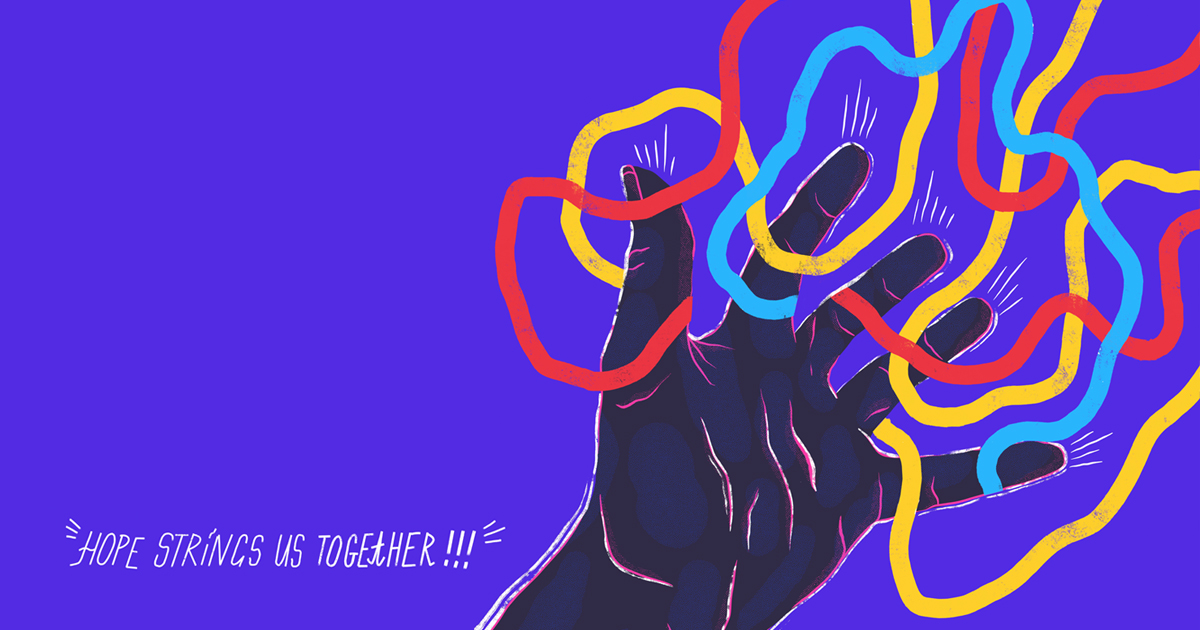Blogs

Finding Passion and Hope While Celebrating Diversity
By Amira Fitzpatrick ’22
Black History is worth more than just one month and should be celebrated throughout the year because there is no American history without Black history. In this reflection, I highlight the value of immersing yourself in diverse cultures and learning more about the identities that are hidden by eurocentric education systems. I hope that by reading this blog, you are able to find hope not only by acknowledging Black history, but praising it, emphasizing it, and integrating it into every aspect of life and educational curricula.
Growing up, my parents sent me to Catholic schools where I was always the only Black person in my classes. In grade school, my family was one of (at most) three Black families and, in high school, I could count all of my Black classmates on two hands. I never had a Black teacher (I still haven’t had one), and surely didn’t learn about Black history past the slavery-MLK-President Obama pipeline. It wasn’t until coming to the University of Dayton that I had the opportunity to learn about my culture inside the classroom. The Common Academic Program (CAP) provides many routes that allow students to take courses centered around various ethnic groups and identities, yet there are still so many students who choose not to fully engage in learning about something that is different from what they have grown up with. Therefore, the CAP Diversity and Social Justice (DSJ) component, with its goals to frame learning by highlighting intersectionality, bias, and intercultural competence, is critical, and so are the many campus and intellectual opportunities provided to engage students further with these dimensions.
Attending the 2019 Association for the Study of African American Life and History (ASALH) Conference with Black Action Through Unity (BATU) was one of the most influential parts of my college experience so far and one of my favorite memories. Together with eight students and Tiffany Taylor-Smith, Executive Director for Inclusive Excellence Education and Professional Development, we attended sessions on promoting research, education, and dialogue regarding Black history and culture. During our few days in Charleston, South Carolina, we had the opportunity to engage with Black intellectuals and learn about our history surrounding the Great Migration, leaving me eager to continue learning about the parts of my history that our education systems have attempted to erase. Passionate about the ways in which identities intersect with social systems, I added an Africana Studies minor.
The first class I took that addressed Black people’s experiences was Racial and Ethnic Relations (SOC 328) with Dr. Leslie Picca which covered CAP requirements for Crossing Boundaries-Integrative. The discussions allowed me to gain a better understanding of my own experiences as well as the experiences of people of color due to systemic and institutional racism such as Indigenous people, Latinx people, and Asian/Pacific Islanders among others.
In high school, I was so used to reading works from white authors who I struggled to relate to. As a junior in Fall 2020, I enrolled in African American Literature (ENG 335) with Dr. Thomas Morgan. In this DSJ course, we read works from modern writers such as Toni Morrison and Ta-Nehisi Coates—providing us with a space to gain a better understanding of the Black experience, as well as engaging, reading and writing about issues of relevance to me as a Black woman. After 15 years of education, I finally felt like I was able to connect with the authors and the stories they told through their literature. Taking this course helped to validate my experiences and see them manifest in real stories.
Drawing from this learning, I joined efforts to better understand and analyze Black people’s experiences through a critical lens as a research assistant for the 2021 Global Voices Symposium. My research over the past few months has allowed me to look at the experiences of our Black students, faculty, and community since 2016. THE Black Experience isn’t just one single experience, and that’s one of the many reasons that makes Black people so excellent. We are all different people and come from different places. There is no specific kind of Black person. A main takeaway from our findings is that we are in desperate need of Black voices, Black students, Black professors, Black organizations, Black love, Black stories, Black music, and Black experiences in order to make our community whole.
Taking CAP Diversity and Social Justice courses and other courses that incorporate the Diversity learning goal allows us as students to examine our own identities and explore the identities of others in ways that are not traditionally represented in our education systems. As a school that prides itself in its community, let us continue to advocate for transformation where ALL of our students feel like they belong, they are loved, they are needed, and their voices matter.
Happy Black History Month!
Amira Fitzpatrick ’22, Core and Honors Student with Sociology and Criminal Justice Double-Major and Africana Studies Minor. She is a research assistant for the 2021 Global Voices Symposium on Race, Vice President of Cultural Engagement for the Multicultural Programming Council, and a PEERS Mentor. Amira works as a Facility Operations Supervisor for UD Campus Recreation, and a Resident Assistant in Housing and Residence Life.
Artwork used in this blog is a courtesy of Maaike Bakker for Fine Acts.
